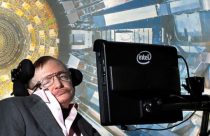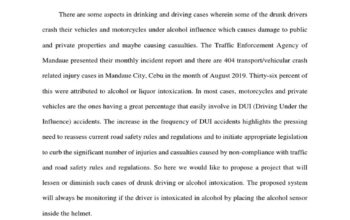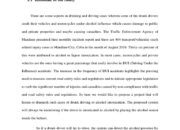On the cosmic stage of scientific inquiry, the passing of an eminent figure, such as the legendary physicist Stephen Hawking, reverberates through the corridors of knowledge and exploration. The loss of Hawking, whose intellectual legacy transformed our understanding of black holes and the nature of spacetime, raises both reflective contemplation and an incitement to address the daunting challenges that lie ahead in our quest to elucidate the fundamental laws of the universe.
As we delve into the profound implications of Hawking’s contributions, one might ponder: What awaits us at this final frontier of space and time, and can we truly grapple with the enigmatic nature of existence without the guidance of its luminaries? The question beckons us to confront a collective challenge: how shall we continue to advance our understanding of the cosmos in the absence of such influential voices?
Hawking’s trajectory from remarkable academic prodigy to an iconic scientist is not merely inspirational; it embodies the spirit of relentless inquiry. His seminal work, particularly the formulation of Hawking radiation, unveiled a paradox at the intersection of quantum mechanics and general relativity—the dual frameworks that describe the microcosmic and macrocosmic realms. This revolutionary concept posits that black holes are not eternal prisons but rather cosmic entities that can emit radiation due to quantum effects near the event horizon, ultimately leading to their gradual evaporation.
The intellectual odyssey that Hawking undertook did not merely challenge pre-existing paradigms; it beckoned scholars and researchers to ponder the implications of information loss and entropy within a black hole’s confines. This conundrum poses significant philosophical inquiries: if information is irretrievably lost when a black hole dissipates, what are the ramifications for our understanding of the universe? The interplay of light, gravity, and information emerges as a tantalizing riddle, propelling physicists toward groundbreaking theoretical advancements.
Moreover, Hawking’s contributions transcended theoretical frameworks, extending into practical realms where cosmological theories intersect with technological innovation. He advocated for endeavors that harnessed computational prowess to model the infinite possibilities of fluctuating universes. This paves the way for future explorations that may unearth novel insights about the origin and fate of our own universe. The challenge posed by his legacy compels us to inquire: can we synthesize these abstractions into tangible advancements for humanity?
As we reflect upon the void left by Hawking’s absence, we must also scrutinize the current state of astrophysics and cosmology. The afforded technological revolutions, notably advancements in telescopic capabilities and data analysis algorithms, shed light upon the primordial questions that have persisted through millennia. However, the perplexity surrounding dark matter and dark energy is a clarion call for rigorous inquiry. The field seems to oscillate between empirical observation and theoretical speculation, further fueling the quest for unification theories that could reconcile quantum mechanics and general relativity.
One cannot overlook how Hawking’s commitment to science communication reshaped the dialogue surrounding physics. His ability to elucidate complex concepts to the general populace reinforced the notion that scientific literacy is paramount. The challenge, it seems, rests squarely within the purview of society: how can we evoke collective curiosity while fostering critical thought? Education initiatives aimed at disseminating scientific knowledge must be bolstered, instilling a sense of wonder and inquiry among nascent scientists and the populace at large.
The crossing of boundaries between disciplines is another area that continues to echo Hawking’s ethos. The implications of his work extend into philosophy, literature, and even the arts, as creatives draw inspiration from his portrayal of the universe. This interdisciplinary approach cultivates a richer discourse on what constitutes knowledge. What legacy of inquiry and creativity can abound in the absence of singular torchbearers if we galvanize our collective efforts toward interdisciplinary collaboration?
In the field of theoretical physics, one must also consider the implications of their responsibilities. With every robust framework advanced, ethical considerations intertwined with scientific innovation emerge. As physicists extend the horizons of our understanding regarding artificial intelligence and its implications on existential risk, the necessity for a moral compass becomes increasingly critical. This challenge calls for a vigilant synthesis of ethical discourse within the scientific community—fostering accountability and foresight in our pursuits.
Looking toward the horizon of future explorations, researchers must boldly step into the unknown. The discussion surrounding interstellar travel and colonization invites both scientific and ethical scrutiny as humanity contemplates its place in the universe. How shall we navigate the ethical dimensions that accompany these grand ventures? Can we reconcile the awe of cosmic exploration with the preservation of life on our home planet?
In conclusion, while the universe mourns the departure of Stephen Hawking, it simultaneously reverberates with the potential vibrancy of unresolved enigmas. The challenge is clear: harness the spirit of inquiry he exemplified to push the boundaries of theoretical thought, synthesize emerging disciplines, and communicate the significance of scientific inquiry beyond academic ivory towers. The final frontier beckons, and it is incumbent upon the successors of Hawking’s legacy to embrace this challenge with unrelenting vigor and visionary ambition. Through collaboration and an unwavering commitment to exploration, the cosmos may yet reveal its secrets, guided by the light of those who dare to question, ponder, and traverse the expanse of spacetime.












